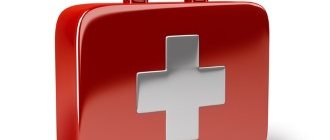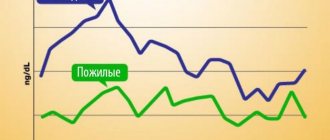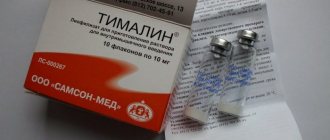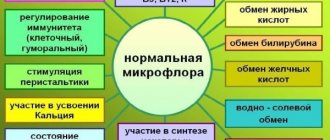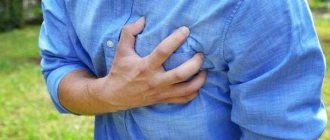Write a review
Reviews: 0
Manufacturers: Akrikhin
Active ingredients
- Not indicated. See instructions
Disease class
- Background retinopathy and retinal vascular changes
- Diabetic retinopathy (E10-E14 with common fourth digit .3)
- Phlebitis and thrombophlebitis
- Varicose veins
- Haemorrhoids
- Venous insufficiency (chronic) (peripheral)
- Lymphoedema, not elsewhere classified
- Other atrophic skin changes
- Chronic skin ulcer, not elsewhere classified
- Spinal fracture at unspecified level
- Trauma of unspecified location
Clinical and pharmacological group
- Not indicated. See instructions
Pharmacological action
- Not indicated. See instructions
Pharmacological group
- Angioprotectors and microcirculation correctors
Rutin: flavonoid or vitamin?
People are still confused about whether rutin is a flavonoid or a vitamin. Vitamin P is the name of a whole group of bioflavonoids, which includes about 150 elements; Routine is one of the most important such elements. Therefore, rutin is a flavonoid, in other words, it is a biologically active compound that changes the activity of enzymes in the body, speeds up or slows down processes. Let us remember that a vitamin is an organic compound of simple structure. In everyday life we are accustomed to calling rutin vitamin P, the main thing is to understand that it is a biologically active vitamin.
Metabolism of vitamin compound
Most bioflavonoids belong to the group of polyhydric phenols, as a result of which they “behave” in the body as phenolic compounds. The composition of the aromatic hydrocarbon molecule includes three units that are subject to metabolic changes: the aromatic ring system, phenolic hydroxyl groups and substituents adjacent to the ring. However, the metabolism of bioflavonoids in the human cell has been studied within the framework of a small number of substances from the group of catechins, flavonones and flavones. At the same time, the mechanism of transformation of hesperidin and aglycones (naringin, eriodictyol, hesperetin) from flavonones was studied in detail, and rutin and aglycones (quercetin) from flavones were studied in detail.
In the human body, nutrient particles undergo deep breakdown, which, according to biochemists, makes them difficult to detect and study. In view of this, the mechanism of absorption of vitamin P in the digestive tract is not fully understood. However, scientists experimentally (using paper chromatography and thickening protein-free extracts) revealed the presence of catechins and rutin in urine. In addition, when animals were administered labeled quercetin, biochemists recorded the highest concentration of radioactivity in the blood serum in the large intestine, and when labeled catechins were introduced, in the carbon dioxide of exhaled air.
In experiments conducted on rats (the animals systematically received rutin preparations for two weeks), scientists found that 90% of the mass of the test substance moved into the intestines 4–5 hours after administration, and 10% remained unchanged in the stomach.
A comparative analysis of experiments shows that rutin and quercetin are absorbed into the body much more slowly than catechins. In addition, the first substance is practically insoluble in gastric juice, chyme, saliva, but is broken down in intestinal and pancreatic juices. Based on these experiments, biochemists have established that the metabolism of rutin occurs in the intestines under conditions of alkaline hydrolysis. Moreover, according to some chemists, the physiological effect of bioflavonoids occurs through the endocrine glands. However, due to the fact that vitamin P inhibits certain groups of enzymes, other scientists have suggested that the mechanism of action of bioflavonoids occurs through selective action on certain enzymatic systems that are involved in the regulation of vascular permeability and tissue respiration. Today, the process of absorption and breakdown of vitamin P is under study.
Rutin: in products
To the delight of vegetarians, rutin is found only in plant foods. Rutin is not synthesized by the body, so a person can only get it from foods or nutritional supplements.
Products containing rutin :
- Citrus fruits, especially lemon.
- Cabbage and salad.
- Tomatoes and beets.
- Buckwheat.
- Rose hips and red rowan.
- In all grape varieties.
- Bell pepper and garlic.
Flavonoids retain their biological activity only in raw foods. When frozen, heated and exposed to light for a long time, the properties of rutin weaken. Alcohol and nicotine consumption also leads to the destruction of vitamin P.
Busters of routine
The rutin formula is easily disrupted by several substances. The most common problem with this component is among heavy smokers and alcoholics. However, even those who only occasionally “indulge” in alcohol or tobacco may be deficient in the vitamin. Over-the-counter painkillers, which include aspirin, can also destroy it; cortisone and antibiotics also have a detrimental effect. In order not to enter the risk group, it is enough to simply change your lifestyle and eat vegetables, fruits, as well as a number of products that contain rutin.
Rutin: properties
As a result of research, scientists have found that rutin exhibits its properties most effectively in combination with other vitamins and active elements. Rutin protects blood vessels from fragility, so people taking the supplement experience much less bruising.
Main properties of rutin :
- Is a strong antioxidant. Even stronger than green tea extract. Rutin attracts free radicals that come from unhealthy foods and binds them.
- Helps with swelling by improving lymph flow.
- Slows down the development of hormones that activate allergic reactions and is more effective than antihistamines.
- Has antibacterial properties.
- There cannot be an excess of the substance in the body. Rutin received in excess of the norm is excreted by the body along with urine.
- Reduces intraocular pressure.
- Protects hyaluronic acid from breakdown.
- Prevents thrombus formation.
Bioflavonoids as antioxidant protection for the body
Bioflavonoids are powerful natural antioxidants that protect the cells of internal organs from the destructive effects of free radicals.
This effect is explained by the presence of hydroxyl groups in the structure of the nutrient, which serve as a kind of “traps” for aggressive substances. If there are no antioxidant factors in the human body, free radicals strive to gain the missing number of electrons by forcibly “taking away” particles from the molecules they encounter, causing a chain reaction of deformations. Damage to the cell membrane entails disruption of metabolic processes in the cell, as a result of which it dies. This reaction, called “oxidative stress,” underlies the development of numerous diseases.
In addition, “attacking” substances react with the body’s genetic material, the carrier of DNA information, resulting in unwanted mutations or malignant neoplasms. Along with this, free radicals glue molecules in the tissues of healthy organs, disrupting the natural course of biochemical reactions. This process is especially noticeable on the skin, since due to the grouping of proteins, the dermis rapidly loses turgor, elasticity and firmness, becoming sluggish, wrinkled and rough.
In therapeutic practice, antioxidant compounds, including bioflavonoids, are used to neutralize aggressive molecules with an unpaired electron. When these substances enter the body, they come into contact with oxygen by attaching an unstable molecule. As a result of this reaction, free radicals are deprived of their dangerous activity, since the stability of the molecule is restored.
The ability of a flavonoid to bind oxygen particles depends on the number of hydroxyl groups in the structure of the molecule. The most powerful antioxidants among group P substances are proanthocyanidins.
In addition, some polyphenolic compounds, in particular resveratrol and curcumin, suppress cancerous tumors by destroying malignant cells and potentiating the viability of healthy organelles in it. Research conducted at the University of Illinois (USA) confirms that the effectiveness of the use of resveratrol in liver cancer is 37–48%, breast cancer – 43–47%, stomach cancer – 35–41% against the background of the growth of healthy cells – 9–18 %.
Along with antioxidant protection, flavonoids exhibit antifungal and antibacterial properties.
Rutin: application
The use of rutin in medicine is varied and justified. Doctors prescribe rutin and other vitamin P supplements in the following cases:
- As therapy after a heart attack or stroke.
- With a severe lack of vitamin C and general vitamin deficiency.
- For people whose blood vessels are susceptible to surges in blood pressure: hypertensives and hypotensives.
- When allergic symptoms worsen, medications containing rutin .
- For varicose veins, ointment is prescribed on a routine basis , adding the substance in the form of supplements.
- Recommended in combination for the treatment of upper respiratory tract diseases: sore throat, ARVI, influenza and others.
- With frequent bruising and bleeding gums.
- An improvement in the condition was revealed after taking rutin during radiation therapy.
- Swelling and pain after injuries.
Doctors advise drinking a vitamin complex with rutin several times a year as a preventive measure.
Signs of lack and excess of routine
Rutin is a vitamin that is necessary for the normal functioning of the body of any person. Since the price of Rutin tablets is minimal, doctors often prescribe the drug to those who are often sick, especially with respiratory diseases or suffer from ailments of the vascular system. Signs of a deficiency of such a component in the body are the following:
- Pain in legs, arms;
- Fast fatiguability;
- Irritability;
- Bleeding gums;
- Acne;
- Retinal hemorrhages;
- Nosebleeds.
However, not everyone will be prescribed the drug by doctors. Among the patients there are also those who have an excess of the vitamin.
The drug itself is quickly and easily eliminated by the body and is not retained. However, with large overdoses, headaches, rashes, and allergic manifestations are possible. Contraindications include routine and individual intolerance to the components of the drug.
Rutin: for blood vessels
Rutin especially important for human blood vessels. The drug strengthens the walls of blood vessels and increases their tone (elasticity), which is especially important for cardiovascular diseases. Blood circulates freely through the veins, as a result, blood pressure normalizes, rutin slows down the formation of cholesterol plaques and blood clots.
Vitamin P not only strengthens the walls of capillaries, it reduces their permeability, thereby helping to prevent external bleeding. It promotes vasodilation and relieves blood stagnation in the veins. The drug with rutin is prescribed by doctors of almost all specializations
- Ophthalmologist, to strengthen the blood vessels of the eyes.
- Surgeon and phlebologist, in the treatment of varicose veins.
- Cardiologist, to strengthen the heart and blood vessels.
- Neurologist, for the prevention of strokes.
Rutin: for children
Rutin is prescribed to children to help them recover faster from colds. In the future, the drug increases the child’s immunity and prevents re-infection. There are official statistics, according to which, children who take the drug with rutin and vitamin C get sick less than others.
The blood vessels in children do not have sufficient elasticity, so nosebleeds are not uncommon at this age. Here rutin ; it will strengthen the walls of the capillaries that are located in the nasopharynx. The drug is not prescribed to children under 3 years of age and pregnant women. Before starting the routine, it would be a good idea to consult a doctor.
Indications
The main indication for the use of rutin is hypovitaminosis. Symptoms of this condition are:
- pinpoint hemorrhages on the skin;
- weakness;
- pain in muscles and joints;
- frequent colds.
Supplements based on this substance are recommended to be taken for the prevention of:
- people in the autumn-winter period, when a person consumes little fresh vegetables and fruits;
- patients who work in hazardous industries and smokers.
If necessary, rutin is prescribed to pregnant women in the second or third trimester.
Rutoside is also used in a complex treatment regimen for the following diseases:
- hemorrhagic diathesis, capillary toxicosis;
- capillary fragility;
- varicose veins of the lower extremities, chronic venous insufficiency;
- cardiological pathologies – endocarditis, myocarditis, ischemic heart disease;
- arterial hypertension;
- diabetic retinopathy;
- allergic diseases;
- radiation sickness;
- post-traumatic pain and swelling of soft tissues.
Preparations based on this substance are also often prescribed to women who experience heavy and painful menstrual bleeding.
Now Foods, Rutin, 450 mg, 100 Veggie Caps
★★★★★
706 ₽
Buy at a discount
Rutin: Ascorbic acid
The biological properties of rutin are closely related to ascorbic acid - vitamin C. The use of two substances together increases their activity several times; It’s not for nothing that rutin is naturally called vitamin C2. Rutin prevents the destruction of ascorbic acid by heavy metals and promotes its more complete absorption.
The tandem of vitamin C and routine activates regenerative processes in the body and activates the increase in valuable hyaluronic acid.
Rutin: Solgar
Solgar offers rutin tablets "Rutin" (500 mg, 250 tablets). The basis of the drug is the bioflavonoid rutin , which helps to obtain and fully use vitamin K. The drug is a source of natural rutin , which binds free radicals and prevents them from damaging cells. The drug is suitable for vegetarians.
Recommendations for use: recommended intake is 1-2 tablets per day during meals. Additional appointments only as prescribed by a doctor. During illness and pregnancy, consult your doctor about the amount of the drug to take.
Similar drugs:
- Carsil Dragee
- Ascorutin Oral tablets
- Yogurt Capsule
- Ergoferon () Lozenges
- Magne B6 Oral tablets
- Omez Capsule
- Papaverine Oral tablets
** The Drug Directory is intended for informational purposes only. For more complete information, please refer to the manufacturer's instructions. Do not self-medicate; Before starting to use the drug Rutin, you should consult a doctor. EUROLAB is not responsible for the consequences caused by the use of information posted on the portal. Any information on the site does not replace medical advice and cannot serve as a guarantee of the positive effect of the drug.
Are you interested in the drug Rutin? Do you want to know more detailed information or do you need a doctor's examination? Or do you need an inspection? You can make an appointment with a doctor - the Euro lab is always at your service! The best doctors will examine you, advise you, provide the necessary assistance and make a diagnosis. You can also call a doctor at home . Euro lab clinic is open for you around the clock.
** Attention! The information presented in this medication guide is intended for medical professionals and should not be used as a basis for self-medication. The description of the drug Rutin is provided for informational purposes and is not intended for prescribing treatment without the participation of a doctor. Patients need to consult a specialist!
If you are interested in any other drugs and medications, their descriptions and instructions for use, information about the composition and form of release, indications for use and side effects, methods of use, prices and reviews of drugs, or you have any other questions and suggestions - write to us, we will definitely try to help you.
Rutin: tablets
Rutin is available in tablet form (500 mg, 60 tablets). The drug contains the natural bioflavonoid rutin . It has all the active properties of rutin and interacts well with Omega-3.
Recommendations for use: convenient dosage, just take 1 tablet per day with food, drink water. During pregnancy and during exacerbation of chronic diseases, consultation with a doctor is recommended.
Notes
- Foods & Nutrition Encyclopedia, Two Volume Set. Marion Eugene Ensminger, Audrey H. Ensminger. CRC Press, Nov 9, 1993, p.207.
- Atanassova M. and Bagdassarian V. Rutin content in plant products. Journal of the University of Chemical Technology and Metallurgy. 2009
- Rutin // Big Encyclopedic Dictionary (Russian). - 2000.
- Kreft I. et al. Rutin in buckwheat-Protection of plants and its importance for the production of functional food. Fagopyrum. 2003
- foods in which the polyphenol Quercetin 3-O-rutinoside is found
- T;
Enkhmaa B., Shiwaku K., Katsube T., Kitajima K., Anuurad E., Yamasaki M., Yamane Y. Mulberry (Morus alba L.) leaves and their major flavonol quercetin 3-(6-malonylglucoside) attenuate atherosclerotic lesion development in LDL receptor-deficient mice // The Journal of Nutrition (English) Russian. : journal. - 2005. - April (vol. 135, no. 4). - P. 729-734. - PMID 15795425. - TJ;
Santos KF, Oliveira TT, Nagem TJ, Pinto AS, Oliveira MG Hypolipidaemic effects of naringenin, rutin, nicotinic acid and their associations (English) // Pharmacological Research (English) Russian. : journal. - 1999. - December (vol. 40, no. 6). — P. 493—496. - doi:10.1006/phrs.1999.0556. - PMID 10660947. - Auger C., Teissedre P.L., Gérain P., Lequeux N., Bornet A., Serisier S., Besançon P., Caporiccio B., Cristol JP, Rouanet JM
Dietary wine phenolics catechin, quercetin, and resveratrol efficiently protect hypercholesterolemic hamsters aortic fatty streak accumulation (English) // Journal of Agricultural and Food Chemistry (English) Russian. : journal. - 2005. - March (vol. 53, no. 6). — P. 2015—2021. - doi:10.1021/jf048177q. - PMID 15769129. - K;
Juźwiak S., Wójcicki J., Mokrzycki K., Marchlewicz M., Białecka M., Wenda-Rózewicka L., Gawrońska-Szklarz B., Droździk M. Effect of quercetin on experimental hyperlipidemia and atherosclerosis in rabbits (English) / / Pharmacological Reports: journal. - 2005. - Vol. 57, no. 5. - P. 604-609. - PMID 16227643. - Navarro-Núñez L., Lozano M.L., Palomo M., Martínez C., Vicente V., Castillo J., Benavente-García O., Diaz-Ricart M., Escolar G., Rivera J.
Apigenin inhibits platelet adhesion and thrombus formation and synergizes with aspirin in the suppression of the arachidonic acid pathway (English) // Journal of Agricultural and Food Chemistry (English) Russian. : journal. - 2008. - May (vol. 56, no. 9). — P. 2970—2976. - doi:10.1021/jf0723209. - PMID 18410117. - Guardia T., Rotelli AE, Juarez AO, Pelzer LE
Anti-inflammatory properties of plant flavonoids. Effects of rutin, quercetin and hesperidin on adjuvant arthritis in rat (English) // Farmaco: journal. - 2001. - September (vol. 56, no. 9). — P. 683—687. - doi:10.1016/S0014-827X(01)01111-9. - PMID 11680812. - Jung CH, Lee JY, Cho CH, Kim CJ
Anti-asthmatic action of quercetin and rutin in conscious guinea pigs challenged with aerosolized ovalbumin // Archives of Pharmacal Research (English) Russian. : journal. - 2007. - Vol. 30, no. 12. - P. 1599-1607. - doi:10.1007/BF02977330. - PMID 18254248. - Reporter, Daily Mail
. Chemical found in apples, onions and green tea can help beat blood clots, London: Mail Online (9 May 2012). Retrieved May 11, 2012. - https://www.naturalstandard.com/index-abstract.asp?create-abstract=/monographs/herbssupplements/patient-rutin.asp
- Flavonoid Rutin Increases Thyroid Iodide Uptake in Rats. Carlos Frederico Lima Gonçalves, Maria Carolina de Souza dos Santos, Maria Gloria Ginabreda, Rodrigo Soares Fortunato, Denise Pires de Carvalho, Andrea Claudia Freitas Ferreira. Published: September 4, 2013
- Metodiewa, Diana;
Kochman, Agata; Karolczak, Stefan. Evidence for antiradical and antioxidant properties of four biologically active N,N-Diethylaminoethyl ethers of flavaone oximes: A comparison with natural polyphenolic flavonoid rutin action (English) // IUBMB Life: journal. - 1997. - Vol. 41, no. 5. - P. 1067-1075. - doi:10.1080/15216549700202141. - Chen YT, Zheng RL, Jia ZJ, Ju Y. Flavonoids as superoxide scavengers and antioxidants. Free Radic Biol Med 1990;9(1):19-21.
- Bando N., Muraki N., Murota K., Terao J., Yamanishi R.
Ingested quercetin but not rutin increases accumulation of hepatic beta-carotene in BALB/c mice // Molecular Nutrition & Food Research (English). )Russian : journal. — 2010. — July (vol. 54 Suppl 2). - P. S261-7. - doi:10.1002/mnfr.200900329. - PMID 20373287. - Chow JM, Shen SC, Huan SK, Lin HY, Chen YC
Quercetin, but not rutin and quercitrin, prevention of H2O2-induced apoptosis via anti-oxidant activity and heme oxygenase 1 gene expression in macrophages (English) // Biochemical Pharmacology: journal - 2005. - June (vol. 69, no. 12). — P. 1839—1851. - doi:10.1016/j.bcp.2005.03.017. - PMID 15876423. - Rutin - Instructions for use, contraindications and composition. Last update of the description by the manufacturer 07/31/1996 Radar Drug Directory
- Kopko SH
The use of routine in a cat with idiopathic chylothorax (English) // The Canadian Veterinary Journal. La Revue Vétérinaire Canadienne (English)Russian : journal. - 2005. - August (vol. 46, no. 8). - P. 729-731. - PMID 16187718. - Types and classification of vitamins
Rutin: in the pharmacy
Now rutin is sold in pharmacies. There is no need to extract it from lemon zest. However, it is not easy to buy a natural product. Among doctors, the affordability of rutin , but prices in pharmacies indicate the opposite. In addition, there is a high probability of buying a fake at such high prices, even in Moscow. The disadvantage of domestic drugs is that, along with rutin , many fillers are included in the composition, this reduces the concentration and benefits of the main substance.
Well-known manufacturers sell their drugs through trusted online stores with a good reputation. A link to one of them is given below.
Rutin: instructions
Before taking the routine, it is necessary to read the instructions. Even though there are no side effects, it is important to choose the right dosage. Rutin is available in capsules, tablets and powders. For external use, rutin is included in ointments and gels. The correct dosage can only be determined by a doctor, based on the individual characteristics of the person.
Rutin: how to take
The body's need for routine changes depending on age.
- For children, about 20 mg per day is recommended.
- Teenagers – at least 30 mg.
- The intake rate for women ranges from 55 to 75 mg of rutin per day.
- For men, it is recommended to take 60-85 mg of rutin per day.
Be sure to take the drug with a sufficient amount of clean water.
Children are usually prescribed 1 tablet per day, adults 2 tablets per day.
Dosage forms
Vitamin dietary supplements are available in 3 forms:
- Capsules. The use of encapsulated rutin is indicated for disorders of vascular permeability, allergies and radiation injuries. The shell dissolves immediately after entering the intestines, the substance quickly penetrates the blood.
- Pills. In addition to vitamin P, hard tablets for oral administration contain cellulose, magnesium stearate and other formative substances. The tablets are small in size and easy to swallow. But drugs released in this form are absorbed worse than capsules - within 30-60 minutes.
- Gels. Intended for external use for varicose veins, for the treatment of bruises and hematomas. Gels can be applied to intact skin in a thin layer. In addition to rutin, such medicines contain other flavonoids from the vitamin P group.
Rutin: reviews
Reviews about the routine are positive. Buyers note an improvement in their condition after taking the supplement and an affordable price for the drug. Women more often buy drugs with rutin . They are more concerned about avoiding spider veins on the skin and unexpected bruises. Women with thin skin write reviews about the positive effect of rutin on blood vessels and skin condition. Consumers note that the best effect comes from regularly taking high-quality nutritional supplements.
Rutin: price
The price of rutin is small, but the health benefits are invaluable. There is no point in overpaying for a drug in Russian online stores without being sure of the quality of the product. By clicking on the link below, you can get to a well-known online pharmacy. Prices for products here are 2-5 times lower, and the quality of the goods is taken seriously. Why buy little-known analogs when you can buy a natural supplement here at an affordable price.
In addition to rutin , in the online pharmacy you can buy: various fat burners, Acetyl L-carnitine, fish oil, beekeeping products - propolis, royal jelly and bee pollen. All products are of high quality and without overpayments.
